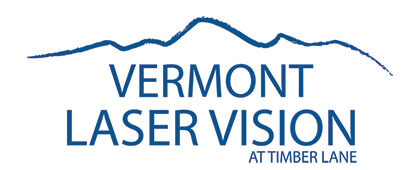
Ophthalmic Consultants of Vermont has highly experienced cataract surgeons, Gregory J. McCormick, MD. and Dr. David Shiple. Our doctors are proud to have the support of skilled staff who help to guide our patients through the process before and after cataract surgery. Although many patients come to our office every day for these services, we strive to give each patient the personal attention they deserve.
A cataract is the progressive cloudiness of the natural crystalline lens within the eye. The crystalline lens accounts for approximately one third of the eye’s focusing power and primarily consists of water and proteins. Over time, the proteins within the crystalline lens begin to clump together and cloud the lens. This clouding interferes with light rays passing through the eye to the retina, resulting in blurred vision. Some people perceive this clouding as a film over the eye or as if they are looking through wax paper; others notice glare and halos around lights. Fortunately, cataract surgery has the potential to improve the visual acuity by removing the clouded crystalline lens and replacing it with a clear, synthetic intraocular lens (IOL).
Symptoms of cataracts include, but are not limited to:
- Gradual deterioration of vision over time
- Blurred vision or double vision
- Starbursts and halos around bright lights
- Trouble seeing at night
- Vision that deteriorates in the sunlight
- Difficulty perceiving colors
- Decreased depth perception
- Frequent changes in glasses prescription
- Trouble reading
Usually patients are the first to perceive the presence of a cataract with symptoms of blurred vision. Eye care professionals, such as optometrists and ophthalmologists, are able to diagnose cataracts when conducting a comprehensive dilated eye exam. During the comprehensive evaluation the eye doctor is able to rule out other ocular diseases and disorders that can contribute to a decrease in vision. Once the doctor has determined the cataract to be the primary cause for the blurred vision, it is very likely that cataract surgery can improve the vision. For patients with other concurrent ocular conditions such as mild, dry macular degeneration, glaucoma or “lazy eye” (amblyopia), some level of vision may be improved with cataract surgery.
Will I Need to Wear Glasses After Surgery?
For the majority of our patients, the desired refractive result following cataract surgery is to obtain the best possible distance visual acuity without glasses and anticipating the need for reading glasses. Many patients feel that their distance vision without glasses is sufficiently clear after cataract surgery that they do a variety of things without glasses at all. However, most patients will achieve their sharpest vision after cataract surgery when wearing glasses both for distance and reading. For that reason, many patients choose to update their distance glasses after cataract surgery, even though their vision may be sharp enough that they do not choose to wear glasses all the time. The reason for residual refractive error (nearsightedness, farsightedness and astigmatism) after cataract surgery is because the lens implant inside the eye heals into position in a way that is not entirely predictable in advance, even with perfectly performed cataract surgery and highly advanced preoperative measurements and calculations.
Not all patients choose to target distance vision. For instance, some patients who are myopic (nearsighted) prior to cataract surgery may enjoy the benefit of being able to see at a close distance without glasses. These and other patients may choose to remain near sighted after cataract surgery with the goal of being able to read without glasses. For these patients glasses will be needed for distance vision tasks (such as watching TV or driving). Alternatively, some patients have had success with “monovision” in contact lenses and would like a similar plan for lens implants placed during cataract surgery. Monovision focuses one eye in the distance and the other eye up close for reading. Many people are not comfortable with monovision, as one eye or the other is always out of focus depending on where they are looking. A patient interested in monovision might consider working with an optometrist to try monovision in contact lenses prior to making a decision about lens implant choice for cataract surgery.
During the preoperative consultation the doctor and the patient will have a discussion regarding the desired postoperative refractive outcome. In doing so, appropriate post surgical expectations are developed by both the patient and the surgeon. Although an individual’s dependency upon glasses or contact lenses may be reduced following cataract surgery, the objective of cataract surgery is to improve the best corrected vision. To achieve the best level of vision following cataract surgery eye glasses or contact lenses may be needed.


